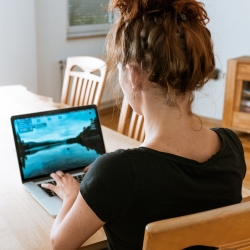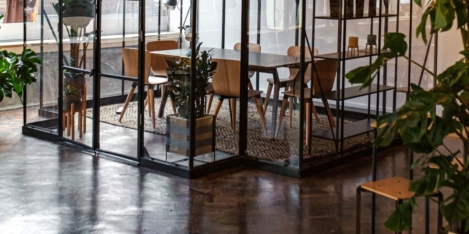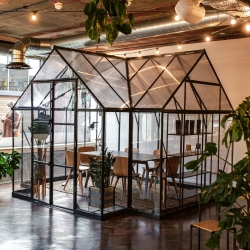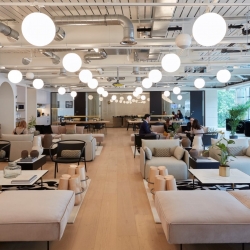To provide the best experiences, we use technologies like cookies to store and/or access device information. Consenting to these technologies will allow us to process data such as browsing behaviour or unique IDs on this site. Not consenting or withdrawing consent, may adversely affect certain features and functions.
The technical storage or access is strictly necessary for the legitimate purpose of enabling the use of a specific service explicitly requested by the subscriber or user, or for the sole purpose of carrying out the transmission of a communication over an electronic communications network.
The technical storage or access is necessary for the legitimate purpose of storing preferences that are not requested by the subscriber or user.
The technical storage or access that is used exclusively for statistical purposes.
The technical storage or access that is used exclusively for anonymous statistical purposes. Without a subpoena, voluntary compliance on the part of your Internet Service Provider, or additional records from a third party, information stored or retrieved for this purpose alone cannot usually be used to identify you.
The technical storage or access is required to create user profiles to send advertising, or to track the user on a website or across several websites for similar marketing purposes.
 Employers should be doing more to encourage staff to start commuting into the office by bicycle, suggests research from Graham Coffey & Co.Solicitors. Ahead of Cycle to Work Day (August 5th), the law firm surveyed more than 1,500 people to better understand attitudes towards cycling safety and what can be done to make cycling a more attractive prospect for employees. (more…)
Employers should be doing more to encourage staff to start commuting into the office by bicycle, suggests research from Graham Coffey & Co.Solicitors. Ahead of Cycle to Work Day (August 5th), the law firm surveyed more than 1,500 people to better understand attitudes towards cycling safety and what can be done to make cycling a more attractive prospect for employees. (more…)








 The removal of most Covid restrictions in the UK has increased calls for clearer practical guidance and the setting of specific indoor air quality (IAQ) contaminant targets to support the health and wellbeing of building occupants. The Building Engineering Services Association (BESA) has, therefore, produced a concise guide to good practice:
The removal of most Covid restrictions in the UK has increased calls for clearer practical guidance and the setting of specific indoor air quality (IAQ) contaminant targets to support the health and wellbeing of building occupants. The Building Engineering Services Association (BESA) has, therefore, produced a concise guide to good practice: 
 Technology is now integral for short and long-term employee wellbeing following the dramatic changes to working life caused by the COVID-19 pandemic, according to Thomas Woods, Vice-President of Enterprise for
Technology is now integral for short and long-term employee wellbeing following the dramatic changes to working life caused by the COVID-19 pandemic, according to Thomas Woods, Vice-President of Enterprise for 
 After more than a year of remote working, the majority of UK workers are well-versed in office-free employment. We’ve had plenty of time to think about how the experience has affected our working habits.
After more than a year of remote working, the majority of UK workers are well-versed in office-free employment. We’ve had plenty of time to think about how the experience has affected our working habits. 
 A new strategy from the UK government promises more inclusive workplaces, easier commuting and better job prospects for millions of disabled people. The strategy sets out 100 immediate commitments supported by £1.6bn of funding alongside an ambitious agenda for future reform. As well as inclusive workplaces, the strategy covers a range of other areas including accessible housing and better access to justice, culture and the arts.
A new strategy from the UK government promises more inclusive workplaces, easier commuting and better job prospects for millions of disabled people. The strategy sets out 100 immediate commitments supported by £1.6bn of funding alongside an ambitious agenda for future reform. As well as inclusive workplaces, the strategy covers a range of other areas including accessible housing and better access to justice, culture and the arts. 
 As SMEs emerge from the pandemic and with further changes to restrictions, it seems they have another challenge to face – the refreshed interest in and demand from employees to work in a company that meets their wellbeing needs, according to
As SMEs emerge from the pandemic and with further changes to restrictions, it seems they have another challenge to face – the refreshed interest in and demand from employees to work in a company that meets their wellbeing needs, according to 


 New research commissioned by
New research commissioned by 
 Access to workplace counsellors, mental health training and support groups are topping the charts on what workers want on their return to the office, according to new research by
Access to workplace counsellors, mental health training and support groups are topping the charts on what workers want on their return to the office, according to new research by 
 Heidrick and Struggles has released the results of a new global CEO study
Heidrick and Struggles has released the results of a new global CEO study 
 As businesses return to their offices they are faced with a challenge – how do they reappraise their space requirements post-Covid? Social and technological advancements are changing real estate from being a fixed physical product, into flexible, employee-centric spaces that enable new models of hybrid working and business operations. These have a significant impact on the ways that businesses work and the options available to them.
As businesses return to their offices they are faced with a challenge – how do they reappraise their space requirements post-Covid? Social and technological advancements are changing real estate from being a fixed physical product, into flexible, employee-centric spaces that enable new models of hybrid working and business operations. These have a significant impact on the ways that businesses work and the options available to them. 








July 15, 2021
The weird science of personal creativity
by Robin Bayliss • Comment, Wellbeing, Workplace design